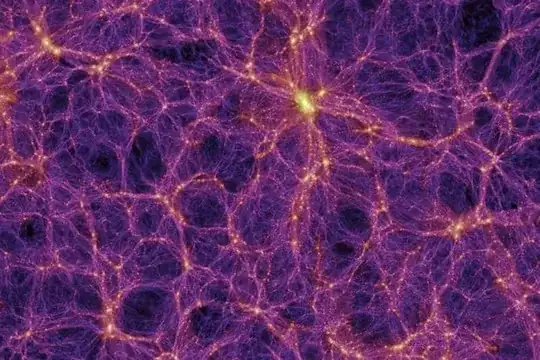What state of matter is the entire known universe? I know it contains all forms, but as it expands into the infinite nothingness, what state of matter does it act as? I know little about physics, but am trying my best to learn. I thought it acted as a liquid or a gas, but was unsure and had nowhere else to ask. Thanks for the help and invite, I appreciate it
3 Answers
In cosmology, the branch of physics dealing with the largest scales, the universe's contents are treated as a fluid mixture. On smaller scales, however, this does not work anymore.
In the solar system, for example, the typical separation of the constituents (planets) is much larger than their size. It does not really make sense to define a single state of matter for such a system.
- 864
To answer this question take a look at grand-scale of universe picture:
Which is a distribution of macro-sized objects, like super-clusters of galaxies and such. The view looks like an exploded gel and a bit reassembles view of neuronal synapses/connections in a human brain, which is mostly composed of water. Then next argument is that this grand-scale structure is what remains after big bang explosion's formed quark-gluon plasma has cooled-down and formed ordinary atoms from which we all are built. And it's a known fact that quark-gluon plasma has fluid properties. So, all these things points us that fluid behavior is mostly suited for describing overall macro state of universe.
- 16,916
In cosmology, there are three general components of the universe: matter, radiation, and dark energy. Matter is just matter - whether the matter is in solid, liquid, gas, or plasma form does not matter. More technically, we say the matter density scales with the inverse of the scale factor cubed, or $\rho \propto a^{-3}$. Solids, liquids, gases and plasmas all obey this relation, hence they are all matter.
- 23,373
